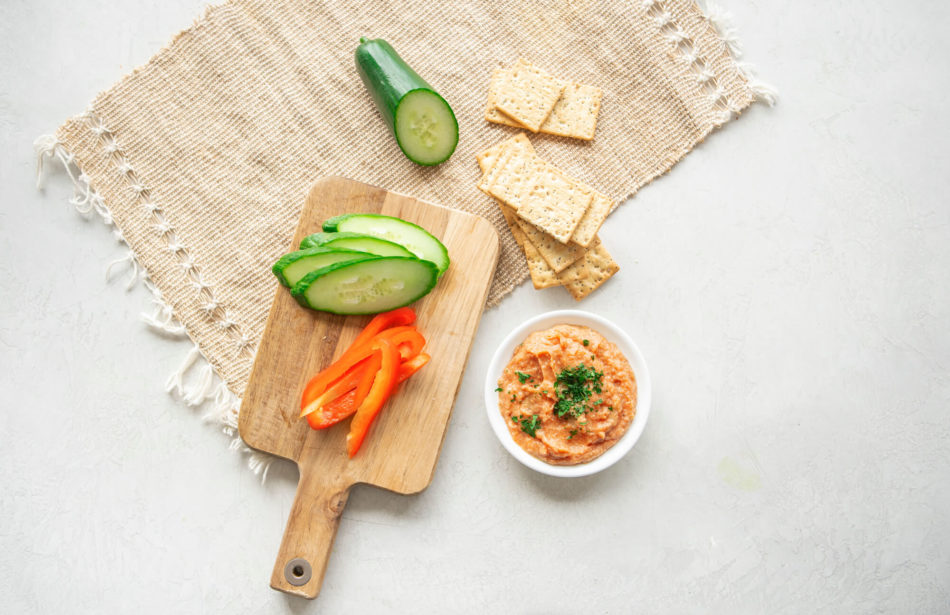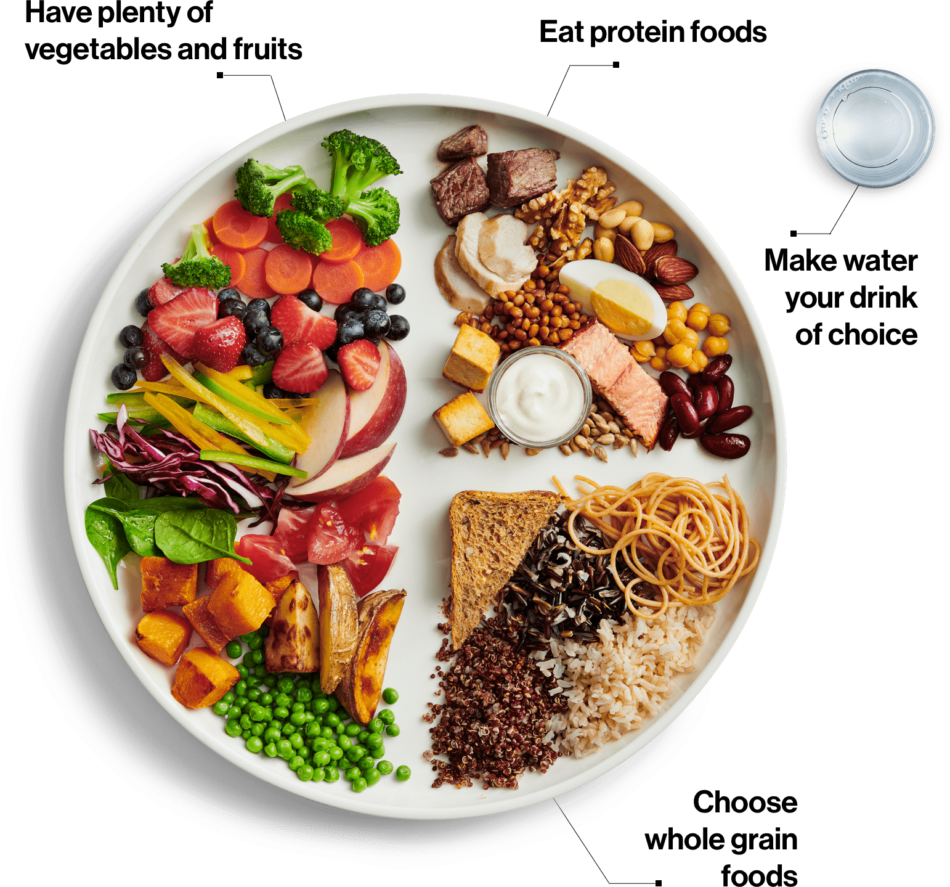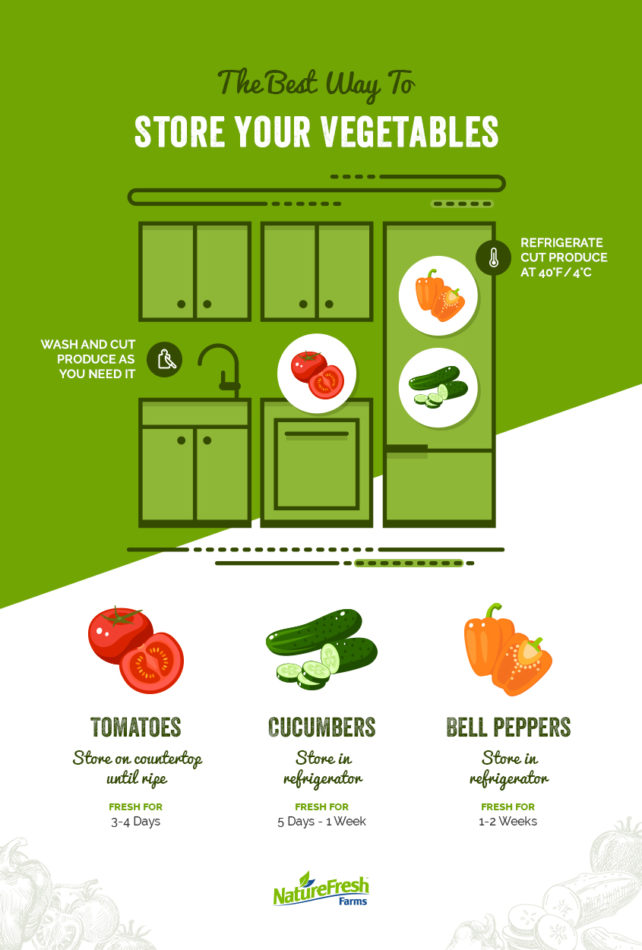World Food Day is a day meant to inspire action that makes healthy eating and #ZeroHunger a normal way of life.
It’s a day that encourages people all over the world to think more deeply about their relationship with food and consider how they can make that relationship healthier and more productive.
It’s a day that topics like food security and accessibility need to be dug into deeply, because they are real issues that impact the lives of millions of people every single day.
But the topics that World Food Day was created to address still aren’t being discussed enough – we shouldn’t just talk about them on World Food Day, but every day!
Many of us don’t believe that our actions as one person or one family or one group can make an impact, but they can! The thing to keep in mind is that, when it comes to our relationship with food, we can have the final say in how and what we eat. And by adopting forward-thinking eating habits, you can take action and make changes that have a lasting positive impact on yourself, your community, and the environment.
What is World Food Day?
This year, World Food Day is focusing on addressing more than just issues related to hunger – the goal is to also promote healthier eating that nourishes people and nurtures our planet.
Our diets have changed in big ways, especially in the last few decades. Many of these changes have not been for the better – millions of people are eating an excess of what they need for a healthy balanced diet. They are also eating more food that often includes ingredients that are the worst for their health, such as refined starches, sugars, salt, and unhealthy fats. It’s also becoming more and more common for people to eat together less often and rely more on the convenience of processed foods – other habits that can damage health and nutrition.
All these shifts in our dietary habits have led to soaring obesity rates and malnutrition – and still, there are over 800 million people across the globe who suffer from hunger every single day.
The good news is that there are many simple and realistic habits that you, your family, and your friends can adopt to nourish your bodies and be kinder to the planet. Your actions can have a powerful ripple effect – once you make meaningful changes to your diet, people take notice and may even be encouraged to make changes in their own life. No action is too small to have an impact and help minimize your food print!
Take Action: Adopt These 5 Eating Habits
The first step towards reducing your food print and nourishing your body with healthy food is taking a hard look at your current eating habits and identifying the areas in which you want to improve. Once you become more self-aware about the habits you want to change, it will be much easier to adopt new habits and develop a healthier relationship with food!
Here are five eating habits we encourage you to adopt in order to better your health and the health of the planet!
Eat More Plant-based Foods
One of the best habits to adopt for a healthier body and planet is eating more plant-based foods. Eating more fruits, vegetables, legumes, nuts, and whole grains is a great way to sustainably consume the essential vitamins and nutrients needed for a healthy and balanced diet.

Plant-based foods are full of incredible nutritional benefits, often packed with high amounts of protein, fiber, and other essential nutrients and vitamins. Plant-based foods are often also efficient to produce because they require significantly less water during production than many animal-based foods.
If you are interested in upping your intake of plant-based foods, try practicing ‘Meatless Monday’ where all the meals you prepare for the whole day are made primarily with plant-based foods. By limiting your meat intake for one day a week, you can slowly decrease your overall meat consumption and increase your plant-based cooking!
Here are a few of our favorite meatless recipes that will help you get started:
Get Tips from National Food Guides
Often enough, national dietary guidelines are great resources to help you define your healthy eating goals. They will often provide recommendations for what kinds of food you should eat every day, how much of those foods, and how you should eat them to maximize their nutritional value.

We recently did a deep dive into the content of the new Canada’s Food Guide in order to help us organize healthy meals and allow families to build healthy eating habits. The new guide does an excellent job of focusing on what your plate should look like rather than measurements – it’s a high-level overview of not only what we should be eating, but how we should be eating it.
You can easily check out our review of the new Canada’s Food Guide for healthy eating guidelines and tips, or you can research your own national food guide for recommendations that are specific to your region!
Eat Local, In-Season Foods
Eating foods that are locally-produced and in-season is another great way to nourish both your body and the planet.
When you eat foods that are produced by local farmers, you are supporting fresh food options that have less of a carbon footprint attached to their production. Locally-produced food hasn’t travelled as far to get to the store, so there are fewer carbon emissions created by its transportation from the farm to the end consumer. If you buy food when it is not in-season locally, that product needs to be brought to the store from a farm that is located much further away, adding carbon emissions as an environmental cost of that product.
Eating in-season foods from local farmers means potentially switching up some of the meals you enjoy in different seasons! If you want to add greater diversity to your plate, do some research into the seasonality of certain foods and figure out what food items you can purchase locally at certain times of the year. But keep one very important fact in mind – greenhouse-grown Tomatoes and Cucumbers are always in-season!
Store Food Properly
Learning how to properly store your food is essential if you are going to develop a healthier relationship with food. Proper food storage can help you keep food fresher longer, leading to less food waste in the kitchen.
There are lots of simple habits you can adopt to store your food properly and reduce your food waste footprint. Here are some of our favorites:

- Bring older foods in your fridge and cupboards to the front so you know to eat them first
- Use labels so you know when you need to eat food by before it starts to spoil
- Pay attention to food labels – learn the difference between ‘best before’ and ‘use by’ labels
- Practice root to leaf eating by cooking with all the edible parts of plants
We also created a storage guide for our three favorite foods – Tomatoes, Peppers, and Cucumbers! Check out our Veggie Storage Guide to learn how to properly store the fresh veggies we grow.
Cook & Eat at Home
Cooking and eating at home is a great way to strengthen your relationship with food (as well as your relationship with people).
When you cook food yourself, you know exactly what ingredients you are using – you can make the final decision about what food you are going to eat. Cooking at home is also a great way to save money because eating at restaurants or buying take-out can quickly become an expensive habit.
Eating at home with your family or friends has been proven to have incredible benefits for kids and adults alike – it can foster emotional balance, fuel better nutrition, and even improve academic performance! Here are some simple tips to help you make eating at home with your family a priority:
- Stick to a schedule with set meal-times
- Involve the entire family in meal-making
- Set the table for meals (and nothing else)
- Make the dinner table a ‘no phone zone’
Check out more realistic ways to make eating at home with your family a priority. Adopting the practice of cooking and eating at home is an excellent way to develop a strong and healthy relationship with food.
You Can Make a Difference
Everyone can do their part to commit to healthier eating and adopt forward-thinking eating habits that benefit both our bodies and the planet. Some changes are harder to make than others, but they all can have a positive impact on ourselves, our communities, our families, and our world.
Check out the World Food Day website to discover even more inspiration for making healthy eating and #ZeroHunger a way of life.



